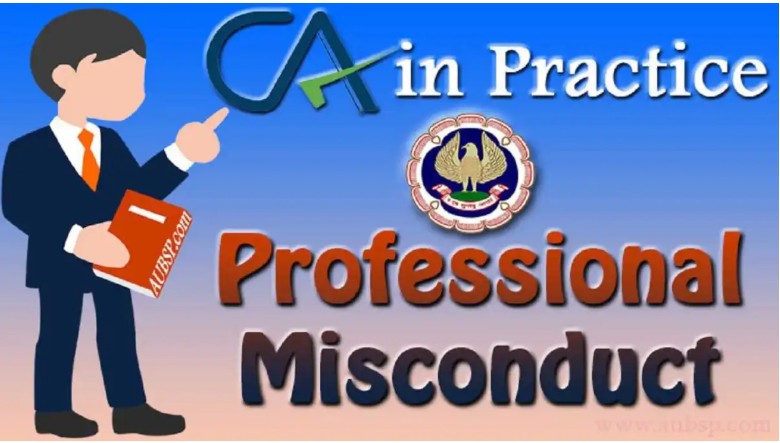Satish Chandra, J.@mdashThis appeal has been filed by the Revenue-Appellant u/s 260-A of the Income Tax Act, 1961 against the judgment and order dated 31st July, 2007 passed by the Income Tax Appellate Tribunal, Lucknow Bench in ITA No. 293/LUC/2007 for the assessment year 2001-2002.
2. This appeal was admitted by a Bench of this Court on 30.08.2011 on the following substantial question of law:
Whether the Income Tax Appellate Tribunal has erred in not deciding the issue as raised by the Appellant before it regarding the addition made by the Assessing Officer to the income of the Assessee Society on account of interest accrued on loan given to its Treasurer without making any provision for accrued interest thereon in its books of accounts in violation of Section 13(3) of the Income Tax Act.
3. The brief facts of the case are that the A.O. has denied exemption u/s 11 of the Income Tax Act, 1961 for the original assessment made u/s 143(3) in view of the provision of Section 13(1)(c) & 13(2)(a) of the Income Tax Act, as the Assessee Society gave interest free loan of Rs. 2,37,500/- to Sri Virendra Singh, Treasurer of the society and no provision for accrued interest was made. The Assessee is following the mercantile system of account. So accrued interest of the loan in question should have been accounted for the relevant assessment year. Finally, the A.O. added the surplus to the total income of Assessee Society. However, in First Appeal, the CIT (A) has deleted the addition.
4. The Tribunal by the impugned order upholds the order of First Appellate Authority by relying upon the ratio laid down in the case of Vijeta Educational Society in I.T.A. No. 425/Luc/05 dated 16.11.2005, wherein it was observed by the Tribunal that the terms, on which the loan was given, were exactly identical as they are in the present case. The relevant observation of the Tribunal is reproduced as under:
5. We have duly considered the rival contentions and the material on record. The Assessee is denied exemption u/s 11 primarily on the ground that it had contravened the provisions of Section 13(2)(a) and 13(1)(c) of the Act. Sub-clause (ii) of Section 13(1)(c) states that any part of income or property which is applied directly or indirectly for the benefit of any person referred to in Section 13(3) will form part of the income of the Trust. Section 13(2)(a) states that if any part of the income or property of the Trust is lent to any person referred to in Section 13(3) for any period during the previous year without either adequate security or adequate interest or both, then the same shall be deemed to have been used or applied for the benefit of the person referred to in Section 13(3). Section 13(3) lists the persons to whom these provisions apply. The fact that the Treasurer to whom loan was given by the Assessee falls within the specified category of persons is not disputed. The only thing which is required to be seen is whether the loan given to him can be said to be for his benefit within the terms of Section 13(2)(a) of the Act. As per the said provision, the income can be deemed to have been applied for the benefit of the specified person only if the loan is given free of interest or without security or both. Coming to the facts of the present case, the resolution of the trustees clearly states that the Treasurer is given the loan which will carry interest @ 10%. It is also specified in the resolution that under no circumstances will interest be waived. Further, it is also on record that the Treasurer has given security in the form of surety who has deposited the original title deed of the properties belonging to him. Thus, it is improper to say that the Treasurer was given the loan without interest and security. When such is the case, it cannot be said that income of the trust is deemed to have been applied for the benefit of the Treasurer. We need no detain ourselves for long on this issue as identical issue had come up before the Tribunal in the case of Vijeta Educational Society in I.T.A. No. 425/Luc/05 dated 16.11.2005, wherein the Lucknow Bench of the Tribunal held that the terms on which the loan was given did not contravene the provisions of Section 13(1)(c) of the Act. In that case also, the terms on which the loan was given were exactly identical as they are in the present case. Therefore, respectfully following the above order of the Tribunal, we hold that the Revenue authorities were not justified in denying the exemption u/s 11 to the Assessee.
5. After hearing the counsel for both the parties, it appears that the judgment and order passed by the Tribunal in the case of Vijeta Educational Society in I.T.A. No. 425/Luc/05 for the same assessment year 2001-2002 came before this Bench. After discussing the matter at length, this Bench observed that:
Since, in the instant case, the interest was charged @10%, as alleged by the Assessee, it should have been reflected in the books of accounts of the Assessee as well as in the audit report but the same was not reflected in any document even subsequent document filed by the Assessee except the resolution, which cannot be relied and it can be considered an afterthought. In the instant case, the Assessee was liable to show this interest as income in the books of account as per mercantile system of accounting. Thus, the A.O. has rightly concluded that the Appellant has given interest free loan to Sri C. P. Singh in violation of the provisions of Section 13(1)(c) of the Income Tax Act and also giving loan without any adequate surety in violation of Section 13(2)(a) of the Act. In these circumstances, we are of the view that the A.O. has rightly denied the exemption to the Assessee u/s 11 of the I.T. Act.
It may be mentioned that in view of Clause (c) of Section 13(1) rendering the entire income of Trust or charitable institution on liable to tax even if only part of income is directed to be applied for the benefit of the specified persons. The legislature, however, also creates a fiction and enumerates in Clauses (a) to (h) of Sub-section (2) of Section 13, a list of circumstances in which the income shall be deemed to have been used or applied for the benefit of the specified persons. These clauses comprehend various types of benefits such as by way of interest free loans, loans without security, permission or licence to use land or other property without charging adequate recompense, excessive payment for service, sale of property for inadequate consideration and investment of the trust funds in concern belonging to the specified person or in which he has substantial interest as observed in the case of
Hence, we set aside the impugned order passed by the Tribunal and restored the order passed by the A.O. The answer to the question is in negative i.e. in favour of the revenue and against the Assessee.
The appeal filed by the department is allowed.
6. The facts and circumstances are identical in nature, hence by following the order (supra), we set aside the impugned order dated 31st July, 2007 passed by the Tribunal-Respondent and restore the order of the A.O.
7. The answer to the substantial question of law is in favour of the revenue Appellant and against the Assessee.
The appeal is allowed.

